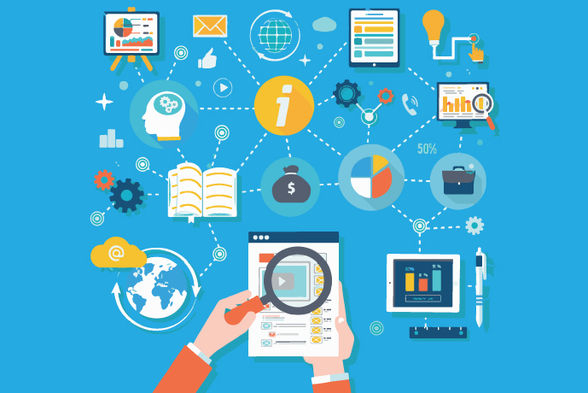With our defects and idiosyncrasies, humans have always failed to be consistent at something. There is always that element of chance involved. In gambling, the house always win. Rather, the house always won. It always won due to the human psychology that brought people back to the table.
Robots have changed that. Libratus has already beaten the best poker players of the world and 20 years ago, Deep Blue outsmarted the reigning world chess champion. Libratus has even got a job at planning war strategies for the Pentagon.
Have we already lost the battle? Let’s take a look at some key aspects to see where we stand.
Job Security and Work Opportunities
One always feels they are good at their job until faced with an insurmountable task. Can facing a robot be included in that list? Some of the biggest brands in the world, from Amazon to Adidas, have already employed machines and robots as they are stronger, faster and more accurate than human workers. From the manual sectors, robots are slowly getting into creative sectors too with Google’s Duplex and The Washington Post’s Heliograf.
Experts believe that there’s only a 50% chance of robots taking up all the jobs in the next 120 years. Performing experiments in a lab under controlled conditions is different to working in the real world, where a myriad of emotions take part in decision making. These robot workers could end up boosting jobs as AI is expected to create 133 million new jobs by 2022 as social media specialists and data analysts, and as customer service workers and teachers.

Relationships
It is well known that algorithm-driven dating apps like Tinder, Hinge, Bumble and more specific apps based on religion, interests and pet peeves, play a huge role in helping us find a mate nowadays. By 2025, they may even be able to predict your sexual compatibility.
However, that’s not the most shocking news. As we are getting more in love with our machines, scientists believe we will soon have relationships with robots, complete with feelings for them. Surveys back this up too. Robot marriages may even be legalized by 2050.

The sex technology industry is booming, already worth $30 billion and having a growth of 30% every year. Teledildonics and animated sex dolls’ sales have skyrocketed. Even your love life might be in danger because of these robots, or maybe your own next partner could be out of science fiction.
Healthcare
This is a profession not endangered by robots, but aided by it. Digital fitness trackers have taken over our lives. Nanotech is already used for surgery, diagnosis and predicting strokes and cancer. Scientists are trying to develop a computer made from DNA, which would scan regularly for any faults and if found, would reboot the system by destroying the unhealthy cells.

The mistakes during surgery caused by human stress and fatigue could be nullified by using robots. But for this to happen, they will have to work alongside humans as they cannot replicate empathy or certain manual tasks like CPR which involves immense use of each of the senses. A non-linear approach and out-of-the-box thinking are also some things which robots won’t be able to replicate.
Nature
We all know about the grave dangers that the world is facing. Robots are being used to undo a little bit of the damage. Australia’s GrowBot and RangerBot have played an important part in planting more trees and removing major threats to the Great Barrier Reef respectively. A robot spider, Latro, can detect nuclear waste and nullify them, without worrying for any potential damage caused by exposure to radiation.

However, such technology can cause collateral damage by requiring more energy to operate and in case of a malfunction, release poisonous materials. They are generally created from materials which, if not recycled carefully, can be detrimental.
Professional Sports
The movie Real Steel, released in 2011, was set in 2020, where all boxers had been replaced by robots. They were still remote controlled, but had the fluidity of expert pugilists. One year away from 2020, we are nowhere near such advanced bots. There is however a machine called the BotBoxer which is a sparring bot and helps athletes train more efficiently.
The annual competition RoboCup features bots who can play football. This technology is still primitive but the developers of the AI claim that they will be able to beat the winners of the World Cup by 2050. The Basketbot can score at a 100% accuracy, far ahead of the current NBA average at just 77%.

However human athletes will probably never be replaced entirely simply because of the uncertainty they bring, creating an allure. Robots will never be able to offer that. Similarly, human coaches won’t be replaced either because machines can’t understand human psychology. But human referees are supposed to be replaced in football by 2030, eliminating the human errors while officiating.
Belly Business
Companies like Ubereats and Deliveroo have revolutionised the takeaway industry and are now looking towards drone delivery. It has already been trialled in Iceland, which has treacherous roads. Robots are predicted to be worth $2.5 billion by 2022 as estimates suggest only 13% of the industry’s jobs cannot be performed by a robot.

Robot waiters in Japan and AI drive-through in Canada have already been developed. They are even increasing production on farms. Even scarecrows are at a risk of losing their prominence at the hands of ‘Super Monster Wolf’, a deterrent against animals.
Tourism
Robot tour managers and tour guides are now close to being a reality for holidaymakers. From a robotic suitcase that follows its owner (TravelMate) to robots that aid passengers to check in at airports (Leo and KATE), robots have already infiltrated the travel industry.

Hotels are employing robots like Dash as a fast delivery assistant and Connie which answers queries by guests at some Hilton outposts. Royal Caribbean’s Bionic Bar features robotic bartenders.
However, these robots fail to understand informal language, sarcasm, irony or dialects which may add to the frustration of already frustrated travelers. Humans may like robots for manual jobs, but for interactions, they still prefer humans.
“Thank you to Betway Casino for the above infographics and research.”
So, who wins?
In terms of efficiency, speed and accuracy, we are no match for robots as they aren’t prone to any human mistakes or fatigue.
But due to the traits we possess, we win when it comes to emotion and thinking non-linearly. Nothing we create can replace the human touch and the emotions that come along with it.
Robots have made our lives more convenient but will not be able to replace humans.








